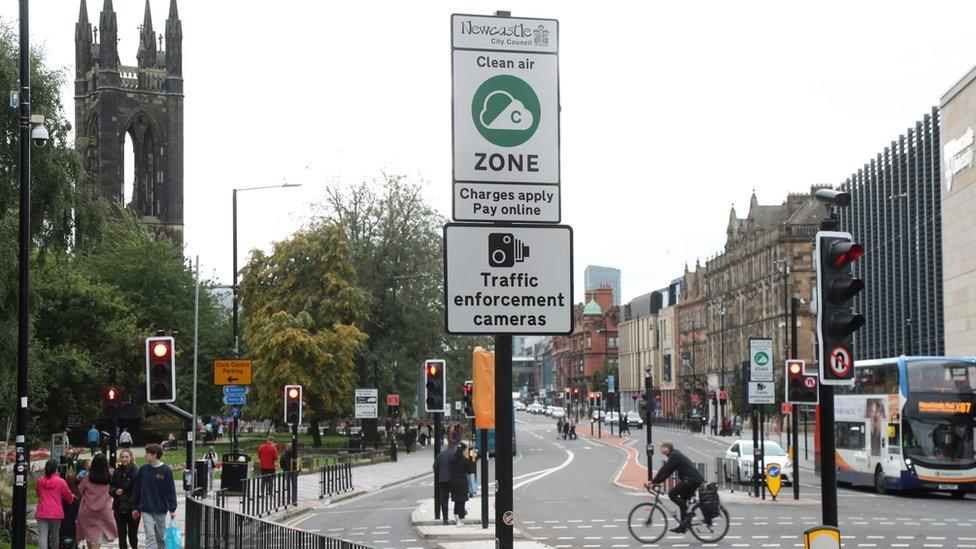Councils clash over England's smallest clean air charge zone plan
- Published
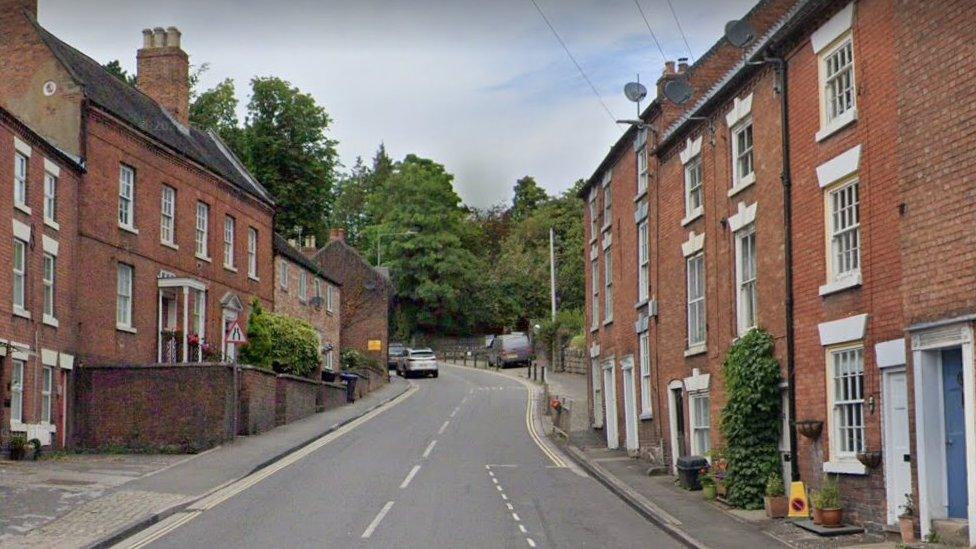
Buxton Road has high levels of nitrogen dioxide
Two councils are disagreeing about plans for the smallest clean air charging zone in England.
On Thursday Derbyshire Dales District Council backed a proposed scheme in Ashbourne town centre, which needs approval from Derbyshire County Council and central government to be enacted.
However, county council leader Barry Lewis said his authority was "surprised" by the move.
He backed building a relief road around the town as an alternative.
If the clean air charging zone is approved it would see vehicles with higher emission levels pay to drive through the town centre, similar to six other zones in place elsewhere in England.
It was not part of 11 options due to be discussed by the district and county council, but was added last week by a committee of councillors.
'Huge' lorry numbers
Mr Lewis said on Twitter, external plans for a relief road were "widely supported", while a statement from the council said it "would expect Derbyshire Dales District Council to have consulted us before making any public proposals".
David Hughes, the district councillor who proposed the clean air zone, told BBC Radio Derby that council officers "knew about the two proposals, but not in sufficient time to be able to tell the county council", but said the ideas "had been discussed in previous meetings".
"What we will have if the plan goes through with the two measures is a conflict between Derbyshire Dales District Council and the county council," he said.
"Unfortunately I think the county council will pull rank, but then if the measures that they do implement aren't sufficient we will still have illegal levels of pollution in Ashbourne."
Mr Hughes said he had received "a lot of correspondence" from residents calling for further measures beyond those initially suggested, adding a consultation on the amended plans will go out "in the next few weeks" before upcoming local elections.
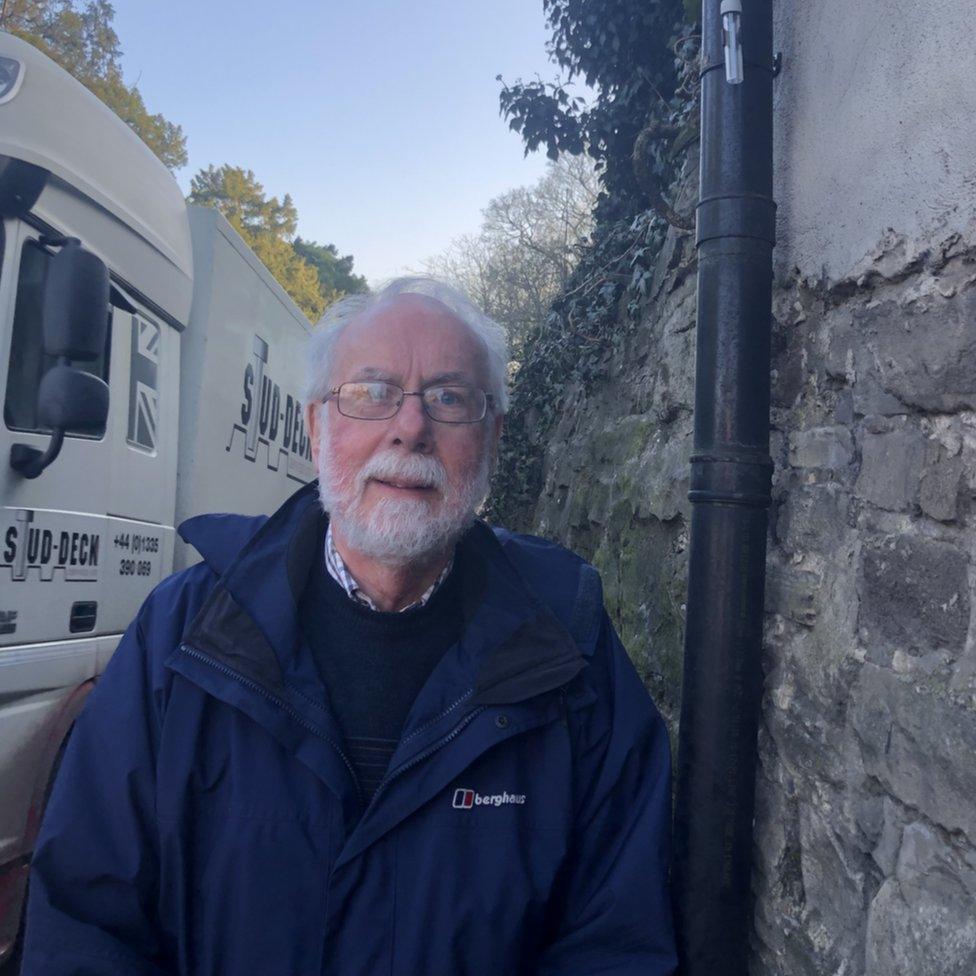
Peter Dobbs said huge HGVs are travelling on roads built for horse and carts
Peter Dobbs, an Ashbourne resident who has campaigned to improve air quality in the town, backed building a relief road, but said additional measures were needed even if a new route took polluting vehicles away from people's homes.
"The big problem with a bypass is that if they agree [on it] today, it will be at least five or six years," he said.
"Basically we've got a town that was built for horses and carts taking huge HGVs in large numbers.
"If we carry on [with the current system], even if they build the bypass we've got five, six, possibly more years of people suffering the consequences of air pollution, which doesn't seem like a terribly good idea."

Follow BBC East Midlands on Facebook, external, on Twitter, external, or on Instagram, external. Send your story ideas to eastmidsnews@bbc.co.uk, external.
- Published13 February 2023
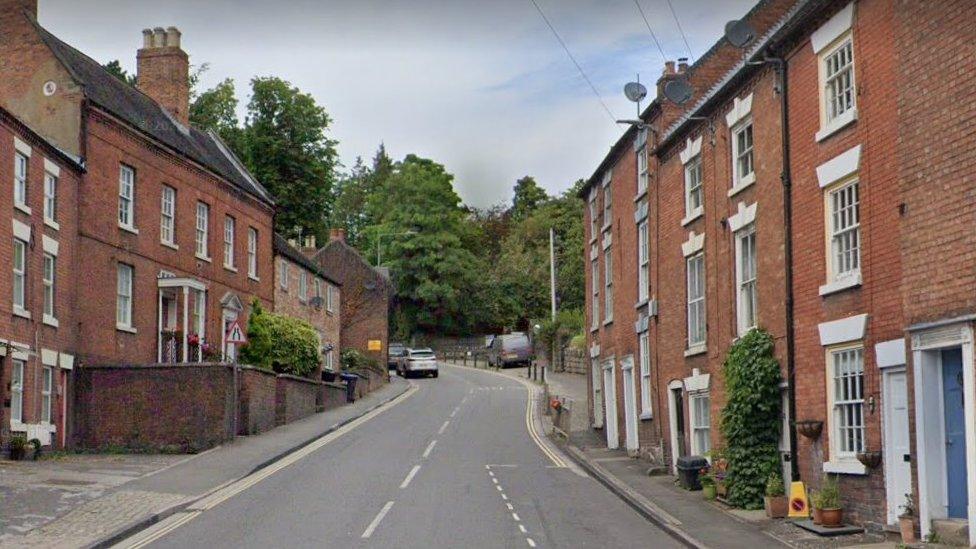
- Published6 February 2023
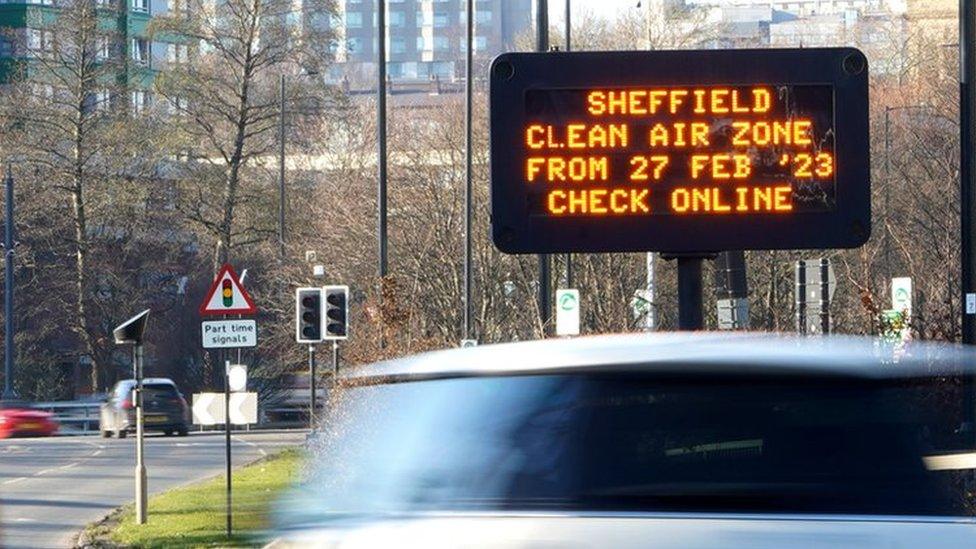
- Published4 February 2023
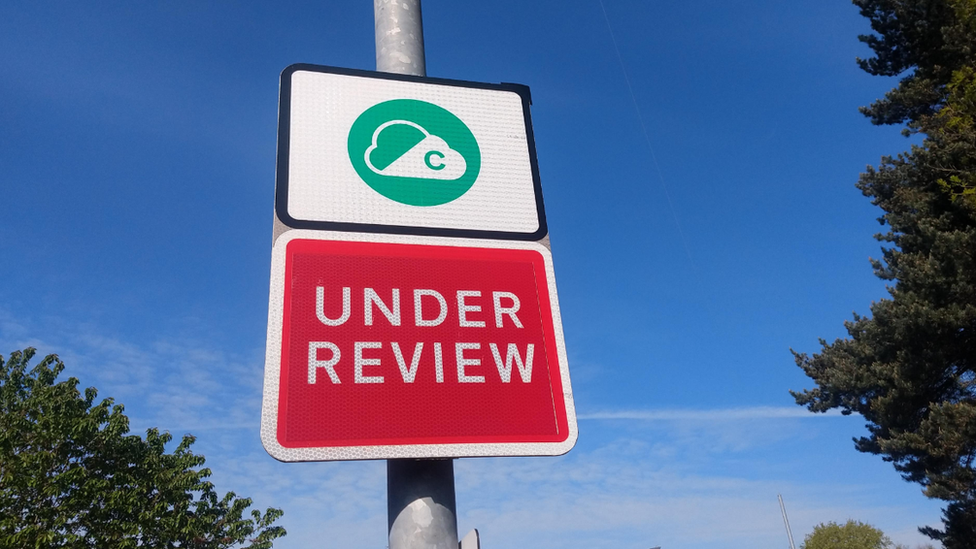
- Published9 January 2023
